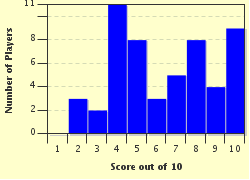Quiz Answer Key and Fun Facts
1. Steve Strange, Midge Ure, Rusty Egan and Billie Currie formed the band Visage during 1978. What was the title of their first successful UK Single release?
2. Which musician departed Ultravox during 1979 to pursue a solo career and who was replaced in that band's line-up by Midge Ure?
3. Which British lifestyle magazine championed the electro-pop genre and particularly the New Romantic movement in the United Kingdom?
4. Which album recorded by David Bowie and released in 1976, is considered to have greatly influenced the early electro-pop genre both musically and stylistically?
5. London based band Spandau Ballet recorded which controversial single leading to some critics accusing them of glorifying Nazi ideology?
6. Midge Ure of Ultravox once said, "The ____ was to the 80s, what Liverpool's Cavern Club was to the 60s". Which London club venue completes Mr Ure's statement?
7. Years before Lionel Richie was dancing on his ceiling, this British duo was living on theirs. Which band was this?
8. Former members of the Human League, Martyn Ware and Ian Craig Marsh, left to form which other synthpop band in 1980?
9. Originally a jazz band formed in 1974, London based Landscape had success with two singles recordings. Their first titled 'Einstein a-Go-Go' was followed by which single?
10. European electro-pop also proved popular during the early and mid 1980s. Which West German band enjoyed a degree of success with their single 'Duel'?
Source: Author
SisterSeagull
This quiz was reviewed by FunTrivia editor
1nn1 before going online.
Any errors found in FunTrivia content are routinely corrected through our feedback system.

